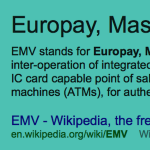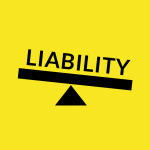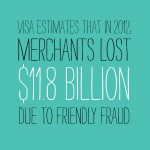 Credit card processing will go through major changes this year–but how will the 2015 EMV Compliance Mandate affect your business? The United States is the world’s final market to become EMV compliant. Our adoption and accessibility to the technology will likely transform all industries reliant upon processing payments via credit cards.
Credit card processing will go through major changes this year–but how will the 2015 EMV Compliance Mandate affect your business? The United States is the world’s final market to become EMV compliant. Our adoption and accessibility to the technology will likely transform all industries reliant upon processing payments via credit cards.
What is EMV Compliance, Anyway?
EMV is an acronym meaning “Europay, MasterCard and Visa.” The “big three” of globally standardized circuit payment cards utilize a chip for payments. These chips are used for ATMs, credit card terminals and digital registers. The EMV Compliance Mandate updates these cards’ internal mechanics and any provider using EMV-reading software will need to comply, too.
 The New Liability Shift
The New Liability Shift
The EMV Compliance Mandate isn’t just a software update. Its attached Liability Shift may affect your business’s transaction policies. USAVisa.com contains the shift’s entire workings, and, as per their description:
“When a transaction occurs using chip technology, any liability for counterfeit fraud, though unlikely, would follow current Visa Operating Regulations.”
In other words, this shift will greatly reduce your business’s fraud liability, assuming your software and hardware is up-to-date. If and when fraud occurs, new standards will neutralize losses while protecting you from liability. Within the financing world, such a shift is incredibly significant: Reduced liability and expenses can be re-balanced and shifted to other business areas.
F ewer Fraud-Related Chargebacks
ewer Fraud-Related Chargebacks
Historically, credit transaction authentication and completion has been tied to fraudulent chargebacks. However, EMV’s updated technology will reduce fraud-related chargebacks due to the following mechanics:
- Increased protection against card skimming
- Increased protection from magnetic strips
- Dynamic authentication possibilities
Reduced fraud chargebacks similarly boost a company’s ability to reallocate resources. While merchant services should always be treated with high security, EMV compliance will greatly enhance a business’s processing and transaction flexibility and security.
Fewer Data Breaches
As stated above, credit card processing will become increasingly stable and secure via EMV compliance. Participating U.S. merchants will be required to maintain full software and hardware upgrades, too, increasing their edge against data breaches.
The mandate promotes immediate liability focus on the party containing “lesser” technology. In short: A consumer using old EMV technology will be recognized as “at fault” in the event of fraud. This same aspect is directly correlated to the mandate’s facilitation of up-to-date vender technology.
So, on average, companies will maintain higher technology than surrounding entities and consumers. This will add further protection, as the superior technology will likely outrun malicious data breaches. The new EMV technology renders extracted information “useless,” as it’s encrypted to fit a digital format—rather than to a readable, magnetic strip.
Staying Aware: Adapting to the Change
Point-of-sale security is still important, and maintaining a healthy workplace promotes sustainability and protection. To ensure your employees and relevant decision makers are up-to-par with new security standards, it’s important to:
- Create a relevant business plan before changing to new technology
- Immediately migrate to new EMV standards
- Train product awareness
New hardware and software changes may take time for adoption, but supporting network connectivity and internal effectiveness will ensure heightened protection. It’ll put your business ahead of the curve, security wise.
Stay updated on payment processing trends by following Abtek on Twitter and Facebook. Sign up to receive our newsletter, too.
Share and Enjoy



 A
A 




